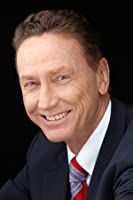
About William Matthies:
Like his main character, William Matthies served in the U.S. Army including a year-long stint in Vietnam during the war.
After leaving the service, he graduated college, married, raised two sons, and eventually found his true calling as a serial entrepreneur.
His first book, The 7 Keys to Change, is based on years of research on personal and professional change management.
His other accomplishments include earning a lifetime ban from Catalina Island at 13, viewing Earth from 80,000 feet during a Mach 2.5 flight in a Russian supersonic aircraft, and remaining an absolute beginner after “playing” guitar for more than three decades.
What inspires you to write?
I am primarily a non fiction reader. I've written a nonfiction book to support my change management/planning consulting business.
That said, I was curious as to why I no longer read fiction as I once did. The book that had the most impact on me was/is Jack Kerouac's "On the Road".
I wondered, could I write something anywhere near as impactful on someone else as his book was and still is on me.
I knew I would never know unless I tried.
What authors do you read when you aren’t writing?
Jack Kerouac, Hemingway, particularly from his time in Cuba.
Tell us about your writing process.
I suppose I am somewhere in between a seat of the pants and outliner writer.
I love a good outline, better still, one done on a whiteboard (which I unfortunately no longer have.)
I did attempt some outline mapping of Raymond Quinn's story, but felt that overwhelmed the process of writing itself.
I abandoned that in favor of writing based on a lot of day and night thought resulting in too many sleepless nights, and more rewrites than I care to remember.
For Fiction Writers: Do you listen (or talk to) to your characters?
Not only listened to and talked to, Raymond visited me in my dreams starting about the third year of writing his story. That is when I knew he was real.
What advice would you give other writers?
Write!
My later career has been as a consultant helping companies develop their business plans, particularly managing change. My mantra to them is, plan, plan, plan>execute. Think first, plan, and then execute.
But when it comes to writing, there is no substitute for writing. Write, edit, repeat; your first 10 drafts will be nowhere near ready to be read by others. Edit and rewrite until you are so sick of it you can't imagine ever reading it again.
When you are finally at that point, pay for beta readers who are not your friends and family. What they say will tell you how much more rewriting you still need to do.
How did you decide how to publish your books?
I spent a little more than 9 months approaching and being rejected or outright ignored by agents. I understand why.
What was the publishing world (author writes and finds an agent who finds a publisher to publish the author's book) is essentially gone, at least for first time unknown authors.
Today, some 2,000,000 self published books each year add to the estimated 10,000,000 (as of 2023) that already exist.
If you wish your book to be among the few that are successful, learn all you can about book marketing. That will be as important to your book as was the writing process.
What do you think about the future of book publishing?
Two, maybe three years ago, I thought the future of book publishing was bleak. I now see it as extremely promising, but only for those who accept it will be very different than how most authors just starting out imagine it to be.
What genres do you write?: speculative fiction, business planning
What formats are your books in?: Both eBook and Print
Website(s)
William Matthies Home Page Link
Link To William Matthies Page On Amazon
Your Social Media Links
Goodreads
Facebook
LinkedIn
YouTube
All information in this post is presented “as is” supplied by the author. We don’t edit to allow you the reader to hear the author in their own voice.
